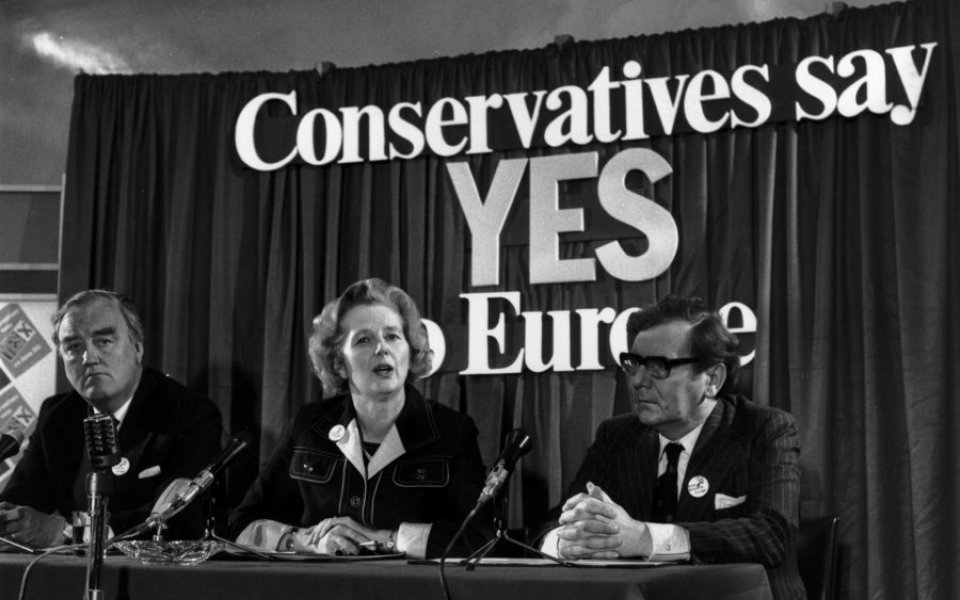Prepare for civil war: Tory Brexit splits will have shades of 1970s Labour

Was there anyone in the Conservative Party who didn’t see it coming? David Cameron has finally given the Cabinet’s Brexit faction the free vote on the EU they so deeply desired. Given that this follows a series of previous climb-downs on everything from the wording of the referendum question to limits on the use of government resources during the campaign, this can come as no surprise.
So is the Conservative Party poised on the precipice of, at the very least, a temporary civil war? Many commentators see the coming rancour as something manageable. But there are two reasons why a Brexit schism could be worse than the predictions.
First, since the Cameron ascendancy, the policy on Europe has been very much “don’t ask, don’t tell”. The EU is such a divisive issue that many in the party simply didn’t discuss it for fear of provoking an argument. Brexit Tories blithely assume that every other right-thinking person in the party shares their view. Moreover, many MPs have become accustomed to paying lip service to anti-EU sentiments, given the influence of groups such as Better Off Out and the need to counter Ukip. But what do they really think? We are finally about to find out. Many in the Brexit camp may be in for a profound shock.
There are equally large levels of self-delusion on the other side of the fence. Pro-EU Conservatives, many with City links, think that EU withdrawal will never happen under any circumstances. They are convinced that the majority of the party is secretly pro-EU.
Second, there are the radicals among the membership. The Conservative Party is currently awash with young, motivated, right wing activists whose historical horizons don’t extend beyond the millennium, let alone to the previous referendum in the 1970s. Able to give chapter and verse on current US Republican presidential contenders; but Sir John Major, who he? Fired by the intellectual purity of the libertarian right, they see secession from the EU as an inevitability. You can already see traces of their ideology in the emails pumped out by the mass of activists recruited by the Brexit campaigns.
The looming referendum is forcing the Tory tribes into the open and, in contrast to the 1970s, Conservatives are suddenly finding themselves in rival camps. The relevant historical lessons should be taken from Labour in 1975: similarly divided, Cabinet members able to join either campaign, the membership split two to one for Common Market exit.
The Scottish independence vote demonstrates how referenda are not good at reconciling deeply held opinions. It proved the same for 1970s Labour. Post referendum, Labour’s radicals were in the ascendancy and subsequently drove out the SDP, which was fronted by Labour’s most pro-EU members.
Even if a Conservative schism is less likely, history suggests the party is in for a very bruising time. If the Conservative Party remains divided, it will be a far more powerful engine to deliver Jeremy Corbyn into Downing Street than anything the Labour Party can currently muster.